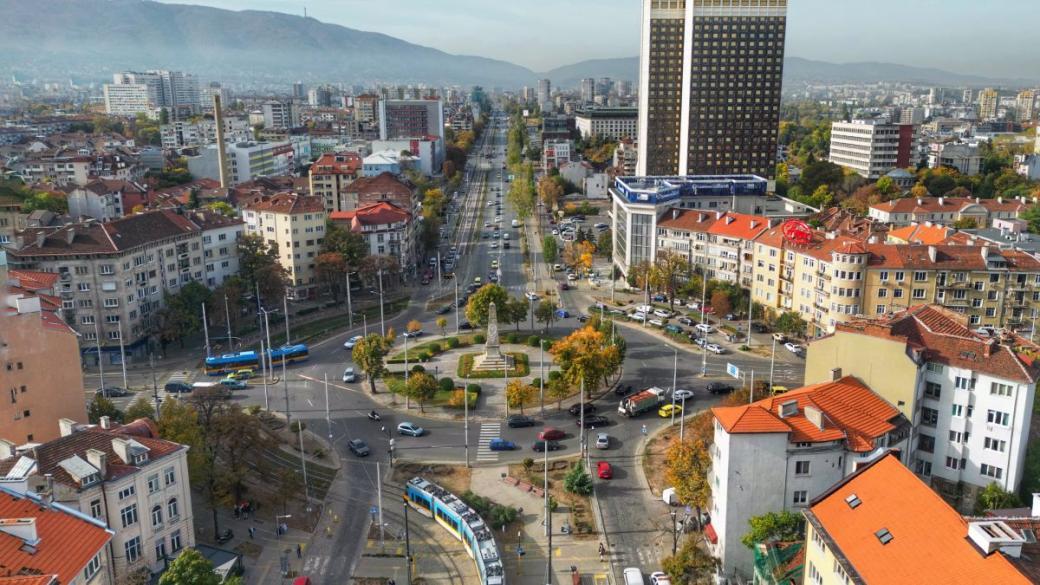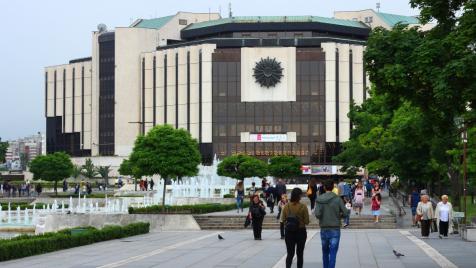Fear and loathing grips the real estate market in Bulgaria
Builders and realtors expect apartment prices in major cities to never stop rising

© ECONOMIC.BG / BTA
This year in Bulgaria we will probably witness two processes - a slight increase in interest rates and a corresponding slight slowdown in the housing market. This prediction was made by Miroslav Vladimirov, PhD, professor at the University of Economics - Varna and member of the Board of Directors of ERA Bulgaria.
I am worried how these processes will be presented in the public space," he said during the Real Estate Business Forums & Awards 2024, which took place on Thursday (29 February) in Sofia.
According to him, this process can be wrongly presented in society as an "apocalypse".
This is not the first time that someone working in the Bulgarian real estate sector has expressed an opinion that the indirect presentation of information about the housing market in the public space (mainly through the media) is the reason for instilling uncertainty among buyers.
Despite the official data from the Registry Agency, which in the last year and a half has reported a decline in property transactions, sector reps continue to claim that Bulgarian property prices will continue to grow contrary to logic and the processes in Western Europe.
There is one trend that is eternal - apartment prices in big cities will not stop rising," said Georgi Shopov, chairman of the National Association of Construction Entrepreneurs (NASP), who also took part in the conference.
What’s the state of the housing market in Sofia?
The real estate market in Sofia is still strong, as there is serious demand from buyers, but it cannot be compared to the peak values of 2022 and the beginning of 2023. Such was the view of Anas Hamid, front office manager at Yavlena property agency, during the discussions.
The Sofia district with the most concluded sales in the past year, according to Yavlena, was Mladost - with nearly 12% share, followed by the central district, Lyulin, Lozenets, Krasno selo, Studentski Grad, Vitosha and Manastirski Livadi. Traditionally, and likewise in the past year, the largest percentage of sales were two-room apartments, followed by three-room and multi-room apartments.
Looking at the different districts of the Bulgarian capital, it turns out that in its southern areas, three-room apartments are sold more than two-room apartments. The same is true in the central districts but with an even larger gap between the sales for the two types of apartments.
The market is probably close to a post-Covid equilibrium," commented Miroslav Vladimirov.
According to him, there is now a stable number of property transactions - about 30% more than before the pandemic - and a slight increase in prices.
Despite the active crediting for property transactions in recent years, he pointed out that the ratio between the volume of mortgage loans granted and the country's gross domestic product is still very low - 10% for 2023, compared to an EU average of 40%. In some EU countries, such as the Netherlands and Sweden, it even exceeds 90%.
Contrary to the established opinion that Bulgarians invest their savings in real estate because there are no significant alternatives, he is of the opinion that they do this because they know where to invest. He, however, pointed out that investing in real estate globally, and not only in Bulgaria, gives the best risk/return ratio.
What is the luxury real estate market situation in Sofia?
The luxury real estate market in Sofia remains stable, and there is an expected price increase this year of about 10%. This is according to Vesela Ilieva, managing partner at Unique Estates and New Estates.
She pointed out that for the first two months of this year, the usual growth of 25 percent of registered buyers has been maintained, but customers are more cautious, they want to see more properties before making a choice. We used to conclude deals after up to five showings, and now it takes over ten, commented the expert.
Buyers search properties mainly for their personal needs, and when they do buy for investment purposes, they don’t do it with a view to earn income from renting out, but rather to maintain the security of their savings.
Vesela Ilieva's presentation made it clear that the Sofia property market does not lack trophy properties (buildings that are listed as cultural monuments). She noted that the largest deal made last year was worth more than 2 million euros in the district of Lozenets, whereas the most expensive trophy property, with a price of 7,000 euros per square meter, was sold in the central area of the capital. Still, she emphasized that these were isolated cases.
Luxury segment buyers are mainly Bulgarians, entrepreneurs with a secure income, and young families working in the IT sector, the food industry and pharmaceutics. Buyers are looking for the type of lifestyle and social environment that can be found in the new gated communities and luxury buildings.
Planning and infrastructure
Representatives from Sofiaplan and Ekip na Sofia (Sofia Team) took part in the panel talks as well. The main task of these urban departments is to monitor the implementation of the General Development Plan of the Bulgarian capital. From their statements, it became clear that the urban planning in Sofia can be described as "broken".
Buildings are being built where there is a lack of infrastructure," says Architect Lyubo Georgiev, head of Ekip na Sofia.
According to him, the city needs to focus on creating infrastructure in the city, because it is precisely its lack that gives people the feeling of rampant overdevelopment.
Translated by Tzvetozar Vincent Iolov

 Gabriela Mahlelieva
Gabriela Mahlelieva 